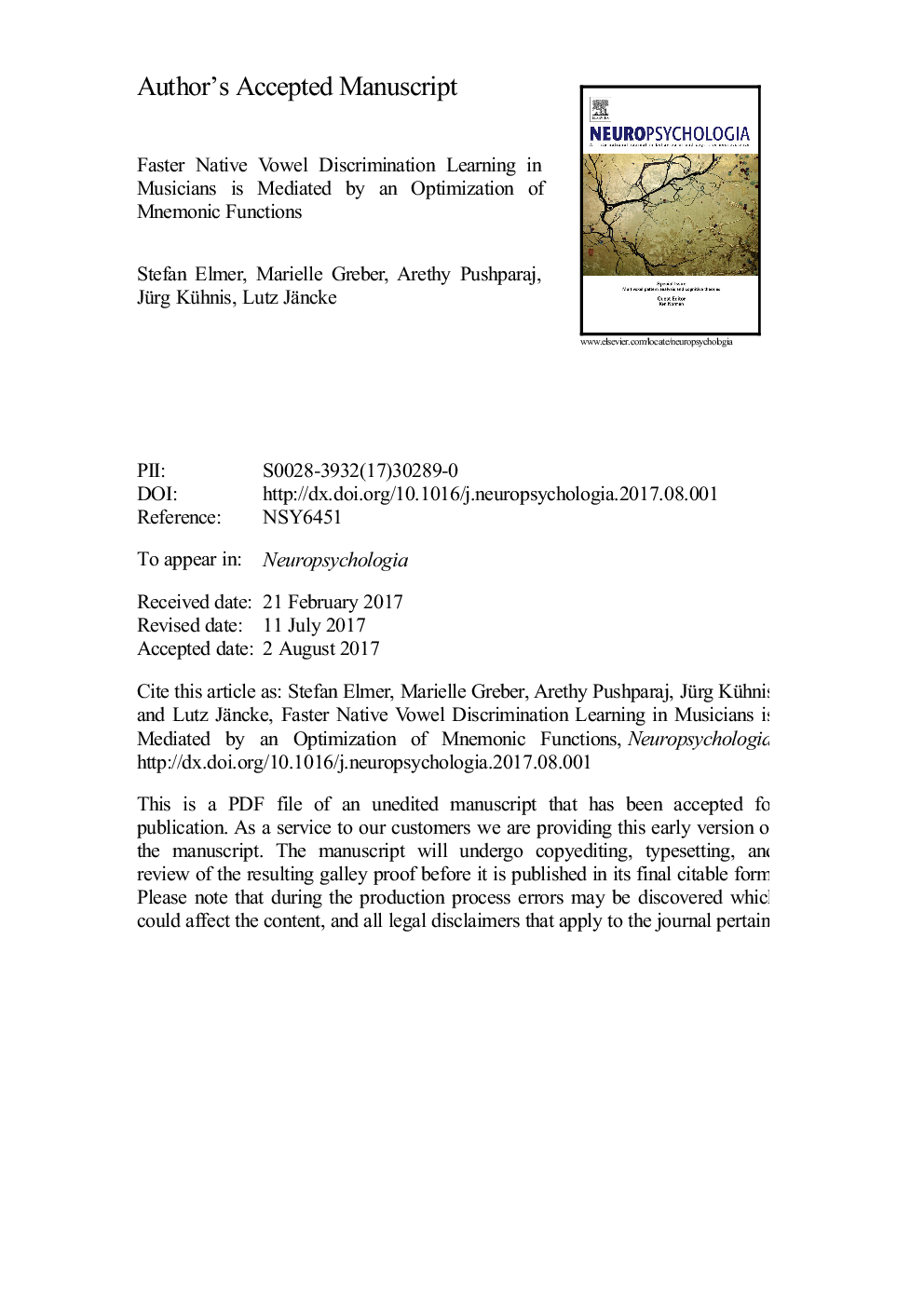ترجمه فارسی عنوان مقاله
یادگیری تبعیض واکه سریع تر در نوازندگان به وسیله بهینه سازی توابع مغناطیسی میسر می شود
عنوان انگلیسی
Faster native vowel discrimination learning in musicians is mediated by an optimization of mnemonic functions
| کد مقاله | سال انتشار | تعداد صفحات مقاله انگلیسی |
|---|---|---|
| 157270 | 2017 | 41 صفحه PDF |
منبع

Publisher : Elsevier - Science Direct (الزویر - ساینس دایرکت)
Journal : Neuropsychologia, Volume 104, September 2017, Pages 64-75

